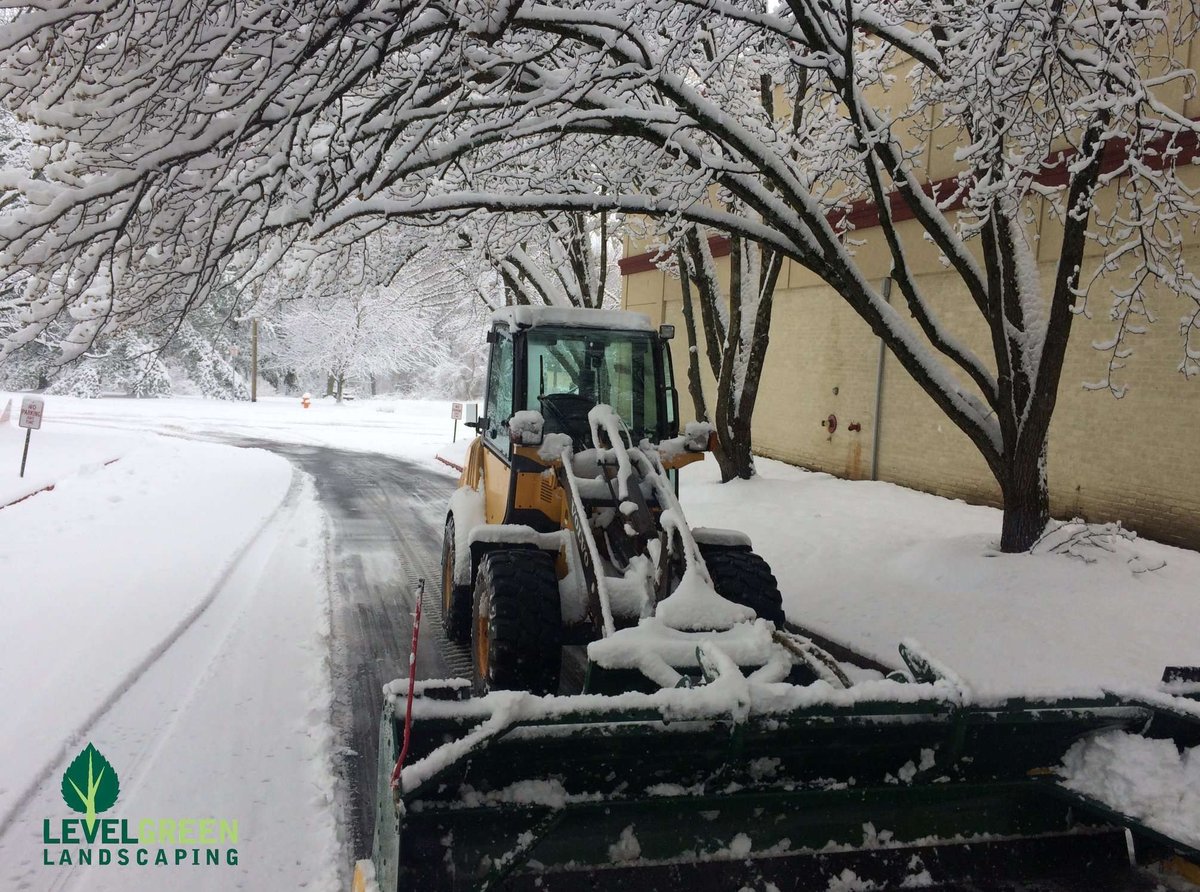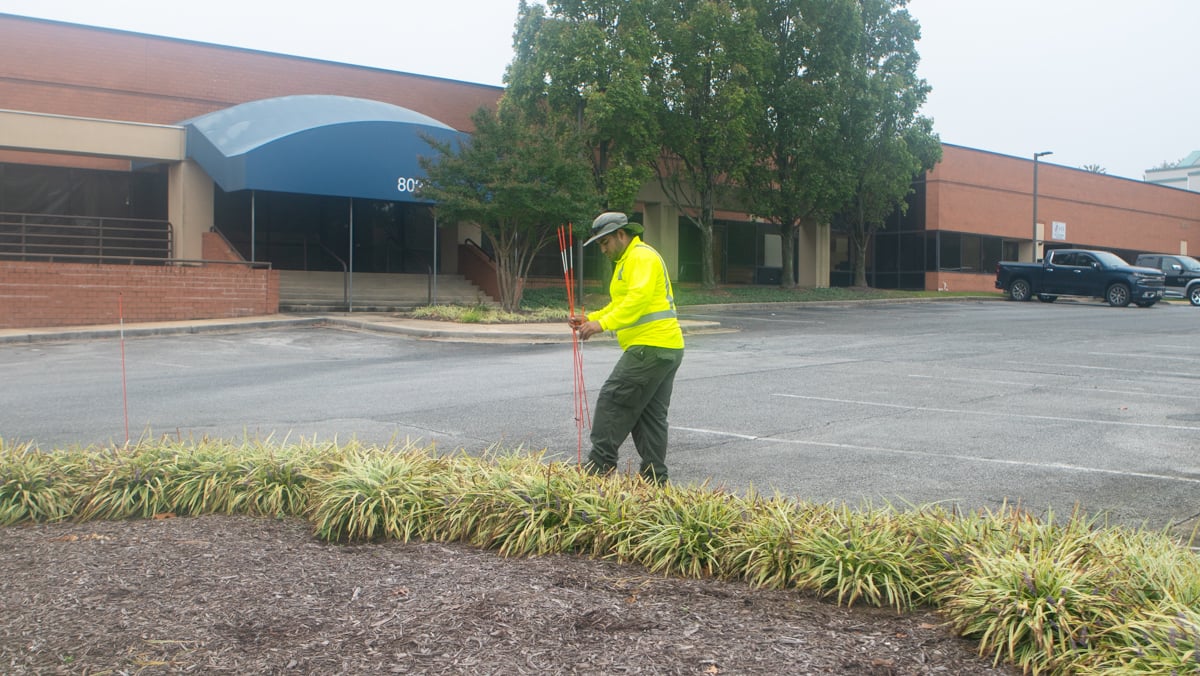Got your mittens ready? Your parka? Your boots?
When winter blasts in with extreme cold, you’re covered.
But what about your plants?
Here’s a look at how to protect trees, shrubs, and plants from winter damage.
Mulch: Mittens for Your Plants
Everybody celebrates mulch in the spring, but that lovely brown bark is a winter hero for your landscaping.

A few inches spread around the base of your shrubs and trees adds a layer of toasty insulation.
It helps the soil stay frozen, to prevent heaving during freeze and thaw cycles. It insulates roots from the cold. And it holds in vital moisture.
Mulch is a must-have to prevent winter damage to landscapes.
How to Protect Trees in Winter?
Tuck those trees in for the winter.
Protect evergreens from bitter wind with burlap screens.
Wrap the trunks and low branches of young trees with screen wire or hardware cloth so hungry critters don’t turn them into a lunch buffet.
Deer problems? Wrap those tasty hedges and shrubs with burlap to deter munching.
Snow Actually Protects Plants
Deep snow is like a big fluffy blanket that actually protects plants from the cold.
Underneath those frosty piles, it’s surprisingly toasty.
Soil that's protected by a blanket of snow can stay close to 32 degrees, even when the air temperature plunges below zero.
So, resist the urge to scoop that snow off your plants. It’s actually doing them good.
Remove Snow Piles From Shrubs
How to protect shrubs in winter? That snow looks light and fluffy coming down, but once it’s piled up, the weight can cause winter damage to shrubs.
Be sure you plan with your snow removal company to pile snow away from bushes that could break from the weight of the snow.
Pro tip: Ideally, those piles should be at the lowest point on the property. If snow collects at the top of a hill, it will melt, run down the hill and refreeze, causing treacherous slick spots.
Bring on the Brine
When it comes to winter damage to plants, brine is one of the good guys.
The liquid mixture of water and salt is sprayed on roads, parking lots and walkways, usually before a snow or ice storm, to prevent snow and ice from sticking.

It’s much less damaging to plants than traditional rock salt.
Salt makes its way into area lakes and streams, jeopardizing the creatures who live there.
Road runoff that contains dissolved salts not only injures plants, but it also can change the structure of the soil, causing it to become compacted. That means water, nutrients and oxygen can’t get to your plants, putting them under stress.
Traditional salt can burn surrounding landscaping, too, but brine is gentler on plant material.
Brine uses one quarter of the amount of salt as traditional rock salt, so it’s gentler to the environment.
Let Level Green Tuck in Your Plants for The Winter
Don’t forget about your prized plants, shrubs and trees just because they’ll soon be buried under snow.

Protecting plants in winter is crucial to your landscaping’s health.
If you’re not already a Level Green Landscaping client, we’d love to add you to our growing list of happy customers. Our focus is on commercial properties like offices, mixed-use sites, HOAs, municipalities and institutions in Maryland, Washington DC and parts of Virginia.
Contact us at 202-544-0968. You can also request a free consultation online to meet with us one-on-one.
We’d love to hear from you.


